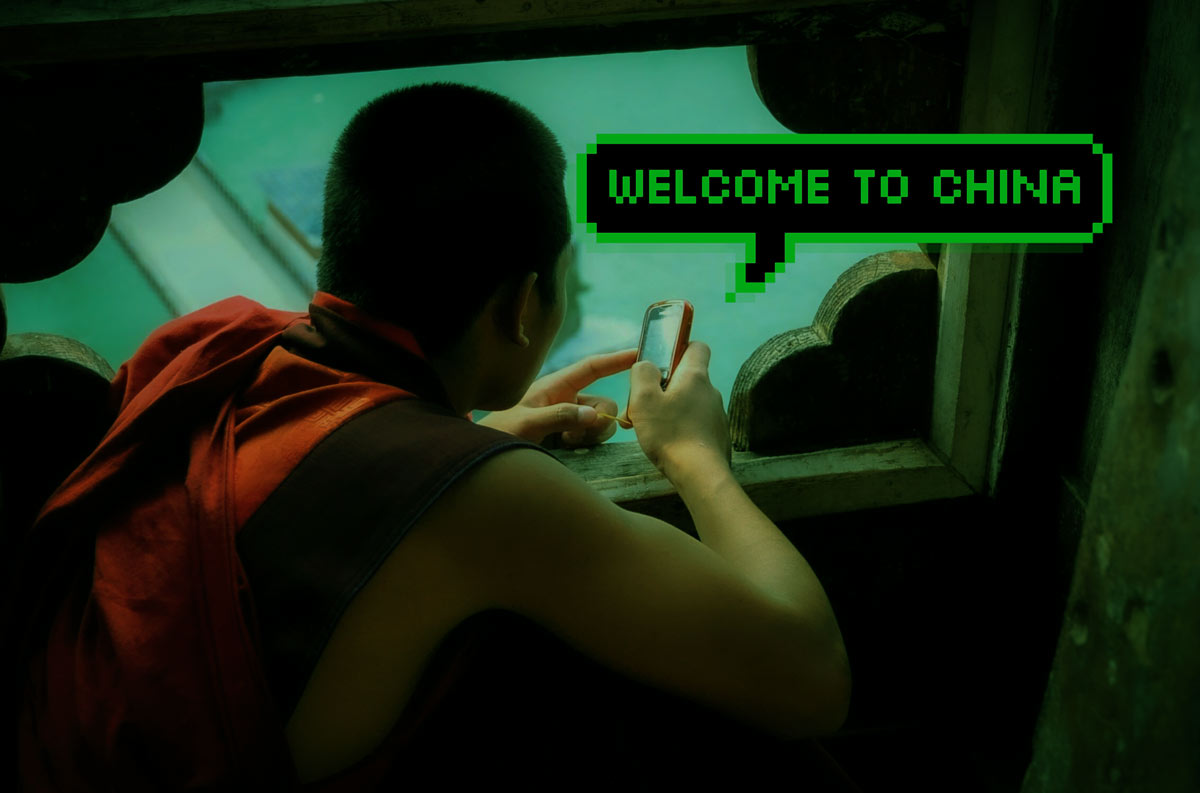In the break of the digital revolution and the rise of sophisticated technology infrastructures, we have come to an age where machines are capable of performing tasks which usually require human cognitive intelligence. Artificial intelligence (AI) is a branch of computer science that allows machines to learn from data and improve their ability to find patterns and solve problems. AI is becoming increasingly important in many industries, including healthcare, automotive, finance, e-commerce, transportation and chatbots. As AI technologies continue to advance, they are becoming a part of our everyday lives and many nations, industries, and institutions are investing in this new technology. The origin of AI dates back to the early 1950s when scientists, physicists, and intellectuals saw its potential. Theoretical models were built and tests such as the ‘Turing Test’ were proposed to check a machine’s ability to exhibit intelligent behavior. The term ‘Artificial Intelligence’ was first coined in 1956 by John McCarthy. In the 1960s and 70s, better algorithms were developed, leading to the creation of the first chatbot, ELIZA, and humanoid robot, WABOT-1. Fast forward to the 90s, developments in AI had a breakthrough with the internet revolution and high processing computers. Today, AI is integrated with a wide range of products and applications including industrial automation, data science, deep learning, big data, intelligent chatbots, voice assistants, speech and image recognition devices, and robotics.
In the last two decades, China’s late venture into artificial intelligence rapidly gained momentum and has now become a world leader in AI publications and patents. AI empowered businesses in China are blooming with a growing number of research firms on AI technology, especially in areas such as speech recognition, speech synthesis and image recognition applications. As per China AI Development Report 2018, global share of research papers in AI rose from 4.26% (1086) in 1997 to 27.68% (37343) in 2017 with 1189 Chinese AI firms which ranks 2nd in the world below the US with 2000 active firms. Following are the few major factors responsible for China’s massive progress in AI.
- AI differs from other technologies since researches done on it by different nations independently are often shared openly. Many of the AI algorithms are publicly available and accessible from published papers and conference proceedings. Thus the open science nature of AI sectors are fundamental for latecomers like China to catch up with other nations such as the U.S.
- China is immensely self-reliant when it comes to data, computer science and engineering talent compared to other nations around the globe. Being an autocratic regime, China has unprecedented access to enormous amounts of user data which helps them in developing efficient AI algorithms, most of which are collected through surveillance infrastructures and other tech giants of the nation without their user’s consent.
- China has strong AI promoting policies such as “Made in China 2025,” “Action Outline for Promoting the Development of Big Data,” “Next Generation Artificial Intelligence Development Plan,”. These three policies are the foundation of Chinese AI developments in the future. Many research firms, investors, entrepreneurs and other AI stakeholders are also well informed on how much the government is prioritizing AI ventures as a promising and a profitable sector.
- China’s weak privacy regulations in AI powered technologies are very beneficial for numerous Chinese AI industries in rapidly bringing their products and services to the Chinese market. Unlike China, many other countries have strict privacy regulations for developing and launching AI powered surveillance and big data technologies. Domestic AI companies in China are thus capable of making huge profits within the country by delivering AI based products and services without the jargon of privacy regulations from the government.
Aggressive developments in AI are evident in nations like China who prioritize gathering intelligence of large datasets conveniently and efficiently to forecast predictions and strategies to control the general mass. China is painting an overarching AI future with three approaches to AI development. Although these three administrative bodies of China’s AI within themselves are very competitive in nature, yet one administrative approach cannot succeed on its own to become a chosen policy of the ruling government. Thus they are all interrelated to each other in China’s progress in AI. These three major Chinese organizations are as follows:
- Cyberspace Administration of China : It is a relatively new but powerful regulator in AI governance which governs the algorithmic rules with a focus on public opinion for content recommendation and disseminating information.
- China Academy of Information and Communications Technology : It is an influential think tank under the Ministry of Industry and Information Technology with a focus on creating the tools for measuring, testing and certification of AI systems.
- Ministry of Science and Technology : It is the department which considers the establishment of AI principles and ethical norms to encourage tech companies, universities and labs to establish their own ethics review committees and audit their own products.
China’s ties with global R&D networks have come under scrutiny due to its abuse of user data and strict censorship and surveillance strategies. Its regulatory laws and policies, such as the Cyber Security Law, Data Security Law, and new anti-monopoly guidelines, require tech giants to cooperate with Chinese intelligence agencies and allow access to user data. AI technology is misused for surveillance of minorities and censorship of information. These developments could influence the adoption of similar autocratic regimes worldwide. Leaked documents suggest that AI integrated big data surveillance apparatus are relentlessly misused in China to screen its Uyghur minorities for entering mosques and even shopping malls. They collect vast amounts of user data such as health, transportation, finance and other online and offline activities through their national IDs. AI enabled online content delivery platforms in China monitor and censor the freedom of information and expression of its citizens and minorities. Disinformation campaigns powered by AI are used to create troll bots and deep fakes to disrupt facts and make these developments in AI within China could generate similar autocratic regimes to the rest of the world based on the extent to which such technology is being exported in this digital age.
The AI revolution impacts the economic competitiveness and national security of nations. Many nations are becoming increasingly cautious and competitive on the grounds of the AI revolution. Tensions between the U.S and China have grown over the trade of advanced chips used in supercomputers, AI, and military weapons. The U.S imposed export controls on China, and other nations such as the Netherlands and Japan have joined in restricting the export of advanced chip-making technology to China. U.K based chip designer ‘Arm’ has also denied selling advanced designs to Chinese firms as it was committed to adhering to all export laws and regulations in the jurisdictions in which it operates. Moreover Taiwan is the world’s top exporter of advanced chips and as the tensions grew between China and Taiwan after U.S house speaker Nancy Pelosi’s visit in August 2022, Taiwan also signaled to abide by U.S export control rules. China filed a complaint against the U.S with the World Trade Organisation, but the U.S responded that it was not the appropriate forum to settle access to advanced technologies related to national security.
The developments in AI have many benefits in the technological evolution of mankind in diverse sectors such as medicine, transportation, robotics, science, education, the military, surveillance, finance and its regulation, agriculture, entertainment, retail, customer service, and manufacturing. The general world population has felt the wave of promising developments in the world of AI with OpenAI’s launch of its chatbot, ChatGPT in November 2022 which gained more than 100 million users in just a few months. In 2023, Microsoft also launched the AI-powered version of Bing in its search engine. Globally there is a fast adoption and integration of AI technology and fast forward to 2022, AI companies raised 66.8 billion dollars in funding which is twice the amount raised in 2020. However as the AI integrated applications and services grow at such a rapid pace, there are eminent concerns raised regarding AI’s threat to the privacy and security of the general population as well as its detrimental impact on the overall employment scenario of the world at large. Following are some of the downsides in the future of AI :
- Authoritarian governments can deploy AI technologies for mass surveillance and censorship technologies.
- AI chatbots without a basic set of community and ethical guidelines can lead to more harm than good for people who use it as a reference and a knowledge resource.
- Deep Fakes generated by AI can be misused for identity theft which can cause serious consequences for individuals, organizations and nations alike.
- AI can lead to Job shortages, particularly in industries and companies which require recurring and repetitive tasks done by manual labor.
- AIs trained on biased data can lead to biased and untrustworthy information. False information generated by AI chatbots can have a serious negative impact on public health and safety. It could also be misused by people who seek to manipulate public opinion and facts.
- AI powered facial recognition systems and other mass surveillance and censorship tools can potentially violate many privacy regulations for individuals and nations alike.
The unceasing progress in the sector of artificial intelligence has an enormous potential to transform our lives for a better and more convenient future. However we must be careful and extremely cautious of its potential misuse. The global impact of AI could be gradually understood based on how it is programmed, integrated and used in different parts of the world. A global collective effort in setting up proper guidelines and regulations on AI powered applications, services and products is crucial to prevent national security concerns of different nations. The essential thing is to find more ways to ensure that rural and modern societies are transformed positively as this technology gets evermore integrated with our daily lives and is becoming accessible to almost everyone that uses the internet.


